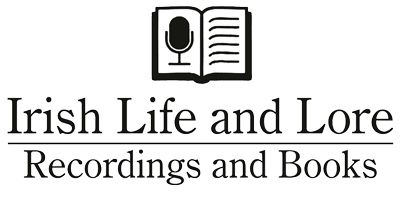Track 1: David Cosby was brought up in Stradbally Hall, Co. Laois, and he initially speaks about historical features in his local area. He explains that as a younger son he had to make his own way, owing to the entail created by his great-grandfather. After studying estate management at Cirencester and a short stint in the Army, he took a post as farm manager at Mount Loftus, and he mentions a book written about that estate. Along with his wife, Judith Baird who was born in India of Scottish origin, he tells the story of the search for their own farm. He says he has a love/hate relationship with England and Ireland, and Judith tells an anecdote which reflects this situation. David and Judith discuss attitudes to being Anglo-Irish. Track 2: David discusses the way in which others perceive him and his family, and he feels that perceptions have improved in more recent times due to further research being carried out. He explains that he and his family returned to Ireland after a period farming in Devon, and he continued his work as farm manager at Dollanstown and then at Bargy Castle, Co. Wexford. The financial difficulties they encountered, the importance of educating their sons and the finding of their present beloved home are mentioned. David’s father, Errold Ashworth Sydney Cosby (known as Ashworth), was 50 when David was born. He had served in WWI and was subsequently called up for WWII. As his great-grandfather and grandfather had died within three years of one another, David explains that his father had double death duties to pay. Track 3: Ashworth Cosby served in the Rifle Brigade, as did his father Dudley Sydney Ashworth Cosby before him. David details his father’s career in WWII in Europe, India and the Middle East. He was sent to Persia for two years to monitor the Russian convoys, being fluent in Russian. He also worked for British Army Intelligence during WWII. David recalls the changes which took place at Stradbally Hall dating from his father’s childhood onwards and he mentions his well-loved great-aunt Lilian who set up a school of lace-making and who also taught piano. Owing to death duties, his father had to change career and return to Ireland to deal with the farm there, along with the implications of the Land Act of 1923 as they affected Stradbally, and the aftermath of his father’s death. David considers that his father was determined to keep the place going, as are the present generation, because the family had been there for so many generations. This was also David’s great-grandfather’s intent as he entailed the property to David’s brother Adrian, who was not born until 1937. He also discusses the present situation. The connection with the Sydney family in England is mentioned, a connection which arises through the marriage of a female descendant of Sir William Sydney, Chamberlain to King Henry II, who married Alexander Cosby. Hence the pheon (spear-head) on the family coat of arms. David talks about his father’s childhood in Hampshire and his frequent visits to Stradbally Hall during those years. Track 4: The close connection between the Cosbys and the Savage-Armstrong family in Northern Ireland is discussed. Both his grandfather and Raymond Savage-Armstrong served in the Leinster Regiment, and David explains that Raymond was his mother’s godfather, and his sister Gwen was his own godmother. He reads a long letter from Frank Savage-Armstrong, written in 1917, describing the Battle of Arras. This letter contains much interesting and valuable detail. David also reads a touching letter written by Frank’s commanding officer following the death of Colonel Savage-Armstrong. Track 5: David explains that although his father served for 18 years in the British Army, he did not receive a pension as his service was not continuous. He describes his father as being of a very honest, tolerant and upright character who saw changing times at Stradbally Hall from its heyday, when sixty servants were employed. He gives an example of the formality that was more usual at one time by recalling his great-aunts in Tunbridge Wells who wore long tweed skirts, blouses and laced brogues. The family tradition of fox hunting and keeping hounds is mentioned, as is the context in which David and his siblings grew up at Stradbally, and the difficulties caused by a lack of money. He recalls the work that they all undertook around the property including, in his case, the re-slating of a roof. He recounts some anecdotes about his childhood, and relations between the local people and the Big House are considered. He remembers the sense of continuity and responsibility to the family tradition which was drilled into him and his siblings. An incident when he was shot at by a person trespassing on the property, the practice of educating the family’s children in England and the importance of tradition in the family, are all discussed. The kindness of people he has met over his lifetime, his career in farm management and the lack of employment opportunities due to the reducing number of estates in Ireland are further discussed.

David Cosby (b. 1947)
 Adrian Cosby (b. 1937) (Part 1)
€10.00 – €20.00
Adrian Cosby (b. 1937) (Part 1)
€10.00 – €20.00 Geraldine Wyndham-Quin, Countess of Dunraven and Mount-Earl (b. 1942)
€10.00 – €20.00
Geraldine Wyndham-Quin, Countess of Dunraven and Mount-Earl (b. 1942)
€10.00 – €20.00David Cosby (b. 1947)
€10.00 – €20.00
Additional information
| Type: | MP3 |
|---|---|
| Audio series: | The Irish Country House and the Great War |
| Bitrate: | 128 kbps |
| Download time limit: | 48 hours |
| File size(s): | 10.98 MB, 11.16 MB, 10.73 MB, 18.32 MB, 20.25 MB |
| Number of files: | 3 |
| Product ID: | CHGW01-35 |
| Subject: | Stradbally Hall, Co. Laois and the Cosby family |
| Recorded by: | Maurice O'Keeffe – Irish Life and Lore |





